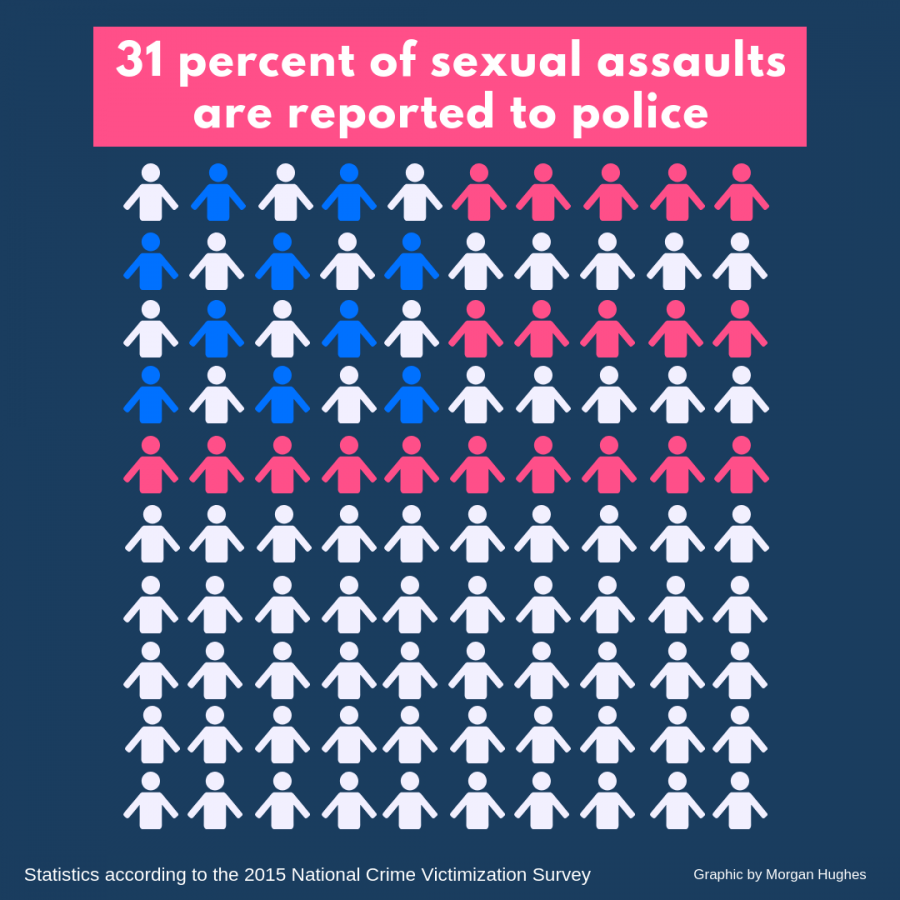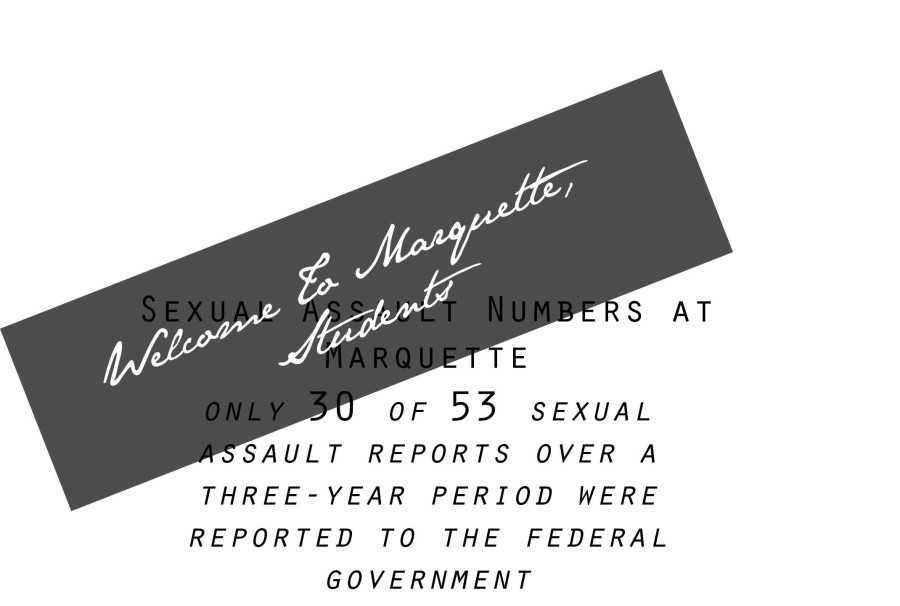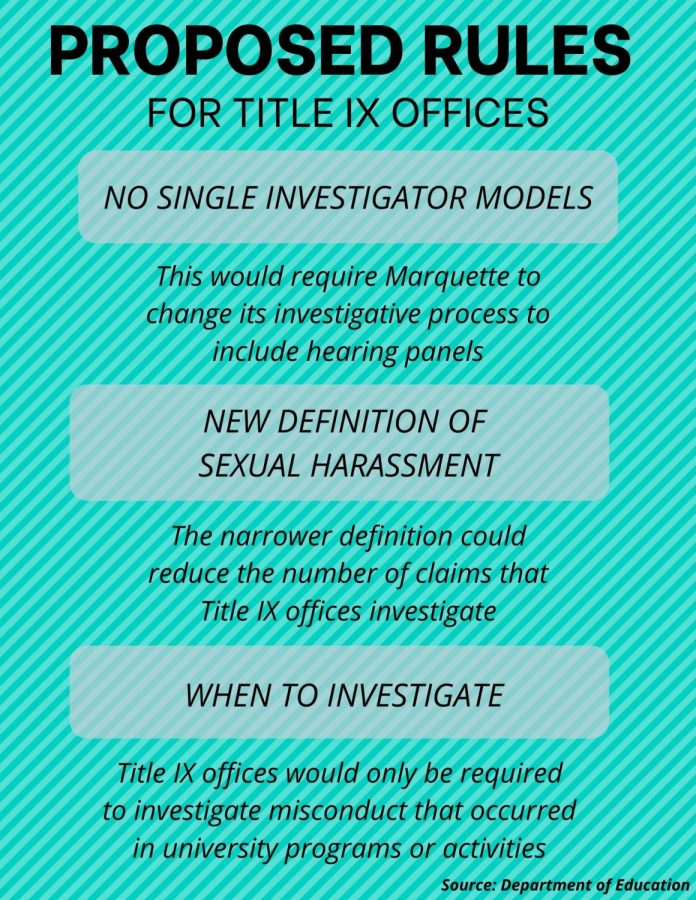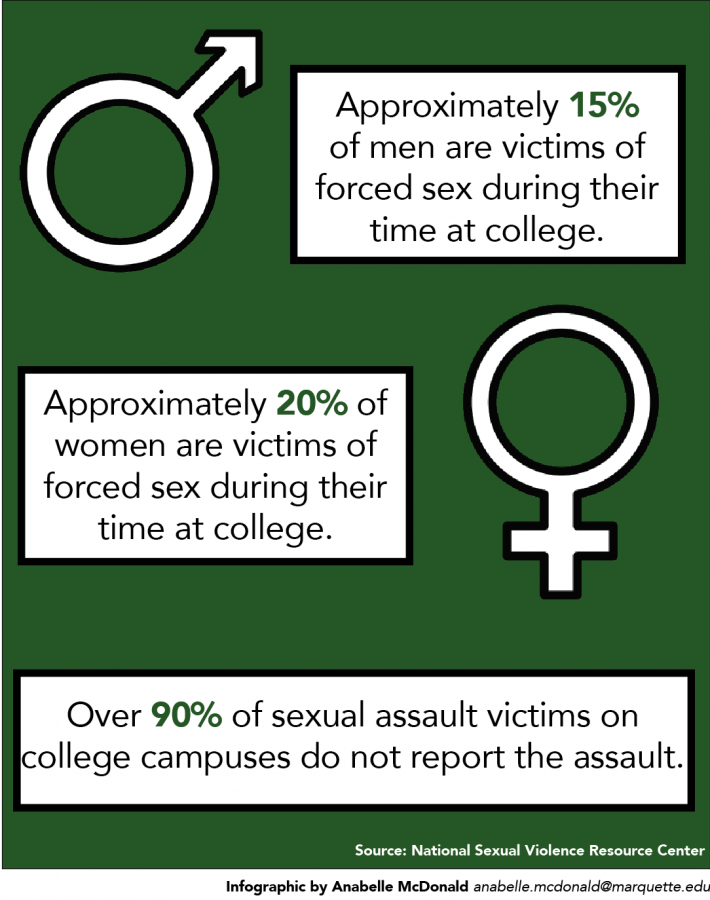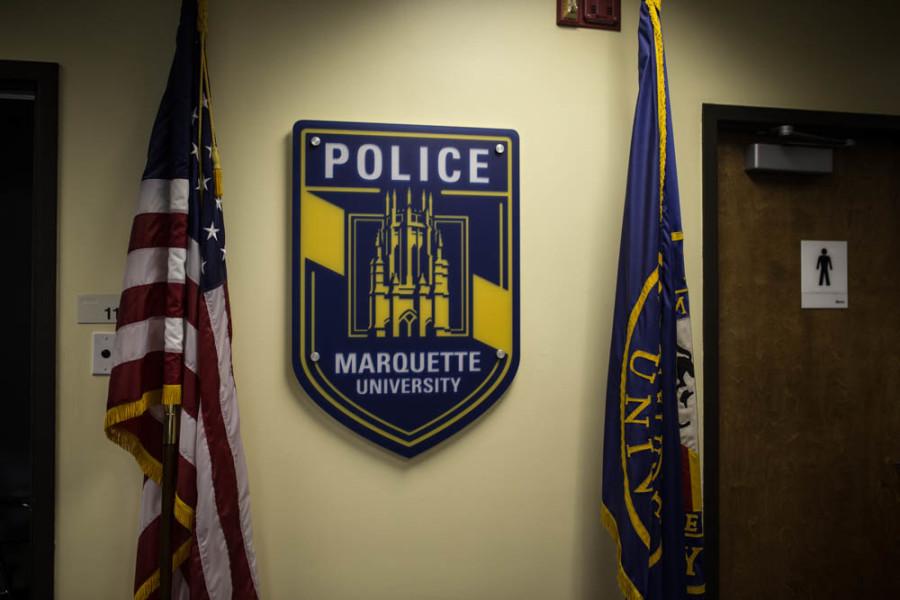
Wednesday, 39 lawmakers sent a signed letter to the U.S. Department of Education after the department’s Office of Civil Rights received 30 complaints of universities and colleges failing to follow protocol in sexual violence cases in 2013. This number is almost double the 17 complaints of the previous year.
The letter called for more transparent and public data, investigation information and enforcement action in the handling of such cases by the department and higher education institutions. The letter cites violations under Title IX of the Education Amendments of 1972, which seeks to ensure equal and free access to education without sexual discrimination or assault.
Two days after the letter was sent, Marquette publicly documented four reports of sexual assault on the daily Department of Public Safety site Friday, demonstrating an effort to keep students and other interested parties informed. In fall 2011, the university came under investigation by the Department of Education for failed reporting procedures following sexual assault allegations during the spring semester. Several incidents involving Marquette students followed, but the university has since addressed the crimes in a clear and orderly manner.
The documented violations of multiple universities and colleges now under investigation drew attention to the efficacy and strength of the Clery Act, a law that mandates higher education institutions make crime reports public. Violation of the law holds a penalty of complete withdrawal of grant funding, if the university or college is a recipient. This never occurred as institutions instead made appropriate policy reforms.
While Marquette is adhering to the Clery Act, many colleges and universities continue to go against proper procedures, jeopardizing their federal funding and student safety by withholding crucial information regarding incidents of sexual violence to the public.
The lawmakers are justified in drawing attention to the prevailing issue of sexual violence on campus. Both the Department of Education and higher education institutions across the country should take action to mitigate the problem.
Publicly showing acceptance and awareness of the problem of sexual violence on campus publicly demonstrates the institution is actively addressing and eradicating the serious crime from campus life. The procedures put in place by the Clery Act are designed to protect students and ensure environments that free of discrimination of all forms, including sexual assault.
Keeping a lid on sexual assault reports and investigations, by both the Department of Education and higher education institutions, is detrimental to current and prospective students who are given false impressions of the university or college. Federal funding and student safety should not be sacrificed to save face or fall short on important procedures. Further investigations may come up empty, but they have lasting effects on prospective students’ perceptions of universities and colleges, current attendees and past alumni.
We are glad members of Congress are taking action to bolster the Clery Act and promoting awareness about the continued problem of sexual violence on college campuses. Marquette’s history with the law indicates such acts of violence need to be managed with candor and the prescribed policy.
The Department of Education and other colleges and universities should seriously consider what the lawmakers have said, taking into consideration the safety of their own students when following proper procedure to recognize and deal with the serious problem at hand.

